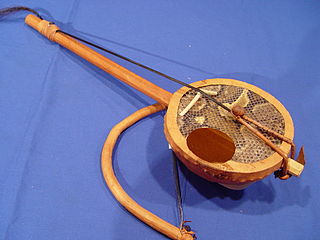Hausa may refer to:
- Hausa people, an ethnic group of West Africa
- Hausa language, spoken in West Africa
- Hausa Kingdoms, a historical collection of Hausa city-states
- Hausa (horse) or Dongola horse, an African breed of riding horse
Hausa may refer to:
Banda may refer to:

Congo may refer to:

Hausa ; Ajami: هَرْشٜن هَوْسَ) is a Chadic language that is spoken by the Hausa people in the northern parts of Nigeria, Ghana, Cameroon, Benin and Togo, and the southern parts of Niger, Chad and Sudan, with significant minorities in Ivory Coast.
Celtic, Celtics or Keltic may refer to:
Ha may refer to:
African or Africans may refer to:
Turkmen, Türkmen, Turkoman, or Turkman may refer to:
Congolese or Kongolese may refer to:
Koko or KOKO may refer to:
Kori may refer to:

The goje is one of the many names for a variety of one or one-stringed fiddles from West Africa, played by groups such as the Yoruba in “Sakara music” and west African groups that inhabit the Sahel. Snakeskin or lizard skin covers a gourd bowl, and a horsehair string is suspended on bridge. The goje is played with a bowstring.
Salim, Saleem or Selim may refer to:
Sara may refer to:

The Hausa are a native ethnic group in West Africa. They speak the Hausa language, which is the second most spoken language after Arabic in the Afro-Asiatic language family. The Hausa are a culturally homogeneous people based primarily in the Sahelian and the sparse savanna areas of southern Niger and northern Nigeria respectively, numbering around 86 million people, with significant populations in Benin, Cameroon, Ivory Coast, Chad, Central African Republic, Togo, Ghana, as well as smaller populations in Sudan, Eritrea, Equatorial Guinea, Gabon, Senegal, Gambia.Predominantly Hausa-speaking communities are scattered throughout West Africa and on the traditional Hajj route north and east traversing the Sahara, with an especially large population in and around the town of Agadez. Other Hausa have also moved to large coastal cities in the region such as Lagos, Port Harcourt, Accra, Abidjan, Banjul and Cotonou as well as to parts of North Africa such as Libya over the course of the last 500 years. The Hausa traditionally live in small villages as well as in precolonial towns and cities where they grow crops, raise livestock including cattle as well as engage in trade, both local and long distance across Africa. They speak the Hausa language, an Afro-Asiatic language of the Chadic group. The Hausa aristocracy had historically developed an equestrian based culture. Still a status symbol of the traditional nobility in Hausa society, the horse still features in the Eid day celebrations, known as Ranar Sallah. Daura is the cultural center of the Hausa people. The town predates all the other major Hausa towns in tradition and culture.
Amina may refer to a list of people and fictional characters with the name
Bori may refer to:
Boko may refer to:
Djerma may refer to:
Pero, also known as Filiya, is a West Chadic language of Nigeria.
Semitic most commonly refers to the Semitic languages, a name used since the 1770s to refer to the language family currently present in West Asia, North and East Africa, and Malta.